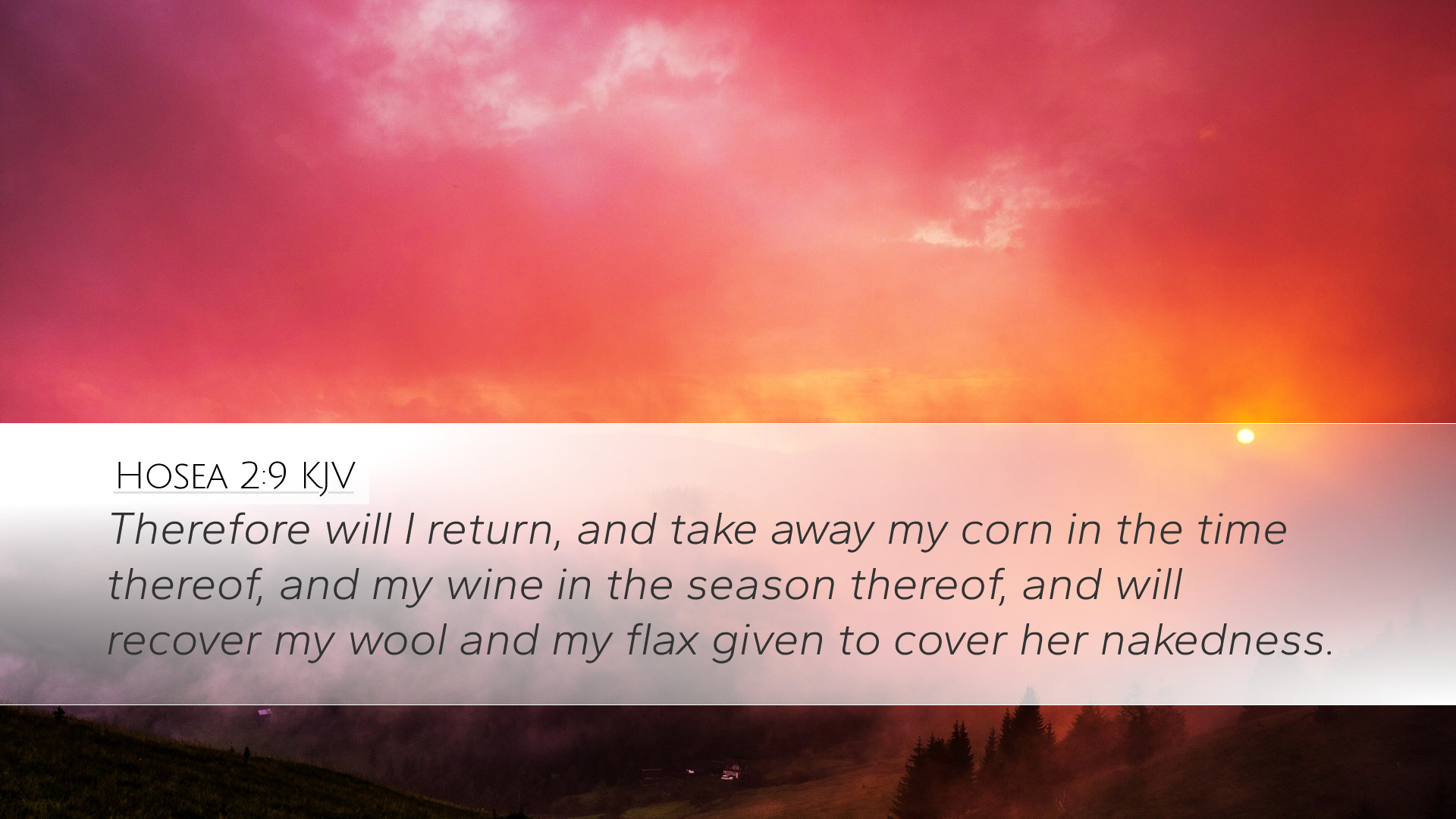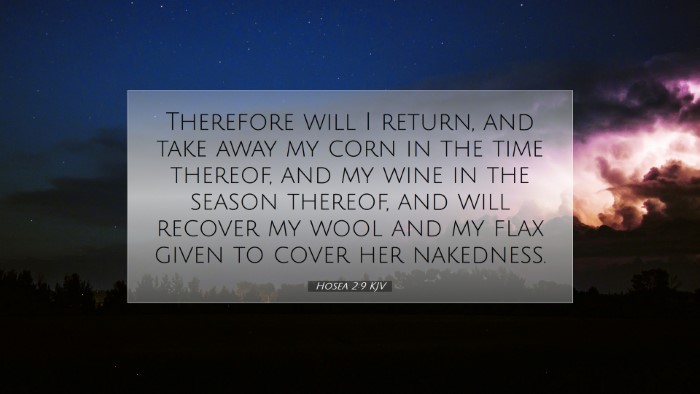Old Testament
Genesis Exodus Leviticus Numbers Deuteronomy Joshua Judges Ruth 1 Samuel 2 Samuel 1 Kings 2 Kings 1 Chronicles 2 Chronicles Ezra Nehemiah Esther Job Psalms Proverbs Ecclesiastes Song of Solomon Isaiah Jeremiah Lamentations Ezekiel Daniel Hosea Joel Amos Obadiah Jonah Micah Nahum Habakkuk Zephaniah Haggai Zechariah MalachiHosea 2:9
Hosea 2:9 KJV
Therefore will I return, and take away my corn in the time thereof, and my wine in the season thereof, and will recover my wool and my flax given to cover her nakedness.
Hosea 2:9 Bible Commentary
Bible Commentary on Hosea 2:9
Hosea 2:9 states, "Therefore I will take back my grain in its time, and my wine in its season; and I will take away my wool and my flax, which were to cover her nakedness."
Contextual Overview
The Book of Hosea holds a vital place in the canon of the Old Testament, representing the prophetic ministry to the Northern Kingdom of Israel, which had turned away from God. The prophet Hosea illustrates the profound relationship between God and Israel via the metaphor of marriage. The chapter from which this verse is drawn focuses on God's judgment against Israel for their unfaithfulness and spiritual adultery.
Interpretative Insights
Divine Retribution
Matthew Henry emphasizes the notion of divine retribution inherent in God's warning. The phrase "I will take back" signifies a withdrawal of blessings that were once bestowed upon Israel. This reflects a broader theological principle where unfaithfulness leads to loss of divine favor. The material provisions, represented by grain, wine, wool, and flax, symbolize God's bountiful provision, which He is now retracting due to the people's infidelity.
The Meaning of Provision
Albert Barnes notes that each item mentioned serves a purpose. Grain and wine represent sustenance and joy, indicating how God provided for their physical and emotional well-being. The removal of wool and flax is significant in that it relates not just to physical nakedness but also to the spiritual nakedness that results from sin. God's actions are a response to the people's actions, indicating a reactive relationship where he removes blessings in light of their iniquity.
Paradox of Divine Favor
Adam Clarke points out the paradoxical nature of God's favor. Initially, blessings overwhelm Israel, granting them prosperity and protection. However, in their arrogance, the people forget their dependence on God, leading to their eventual downfall. Clarke highlights that God's intention is corrective rather than entirely punitive, as He desires Israel's repentance and restoration over their destruction.
Application and Reflection
Understanding God's Displeasure
- Pastors are reminded that God's displeasure with unfaithfulness serves as a warning for congregations to remain faithful in their covenant relationship with Him.
- Students of Scripture can reflect on the implications of divine withdrawal, recognizing that blessings come with the responsibility of faithfulness.
- Theologians can delve into the deeper implications of God's justice and mercy showcased in the prophet's message, pondering the balance between divine discipline and grace.
Encouragement Towards Repentance
The verse ultimately encourages a return to faithfulness, with divine provision awaiting those who repent. God’s intent is not merely punishment but restoration. It is in the acknowledgment of sin and turning back to God that restoration is found. This biblical principle transcends the narrative of ancient Israel, holding relevance for all believers today, reminding them of the importance of maintaining a covenant relationship with God.
Conclusion
Hosea 2:9 serves as a profound reminder of the interconnectedness between gratitude, faithfulness, and the blessings of God. As seen through the commentaries of respected scholars, this verse exemplifies God’s character as both just and merciful, encouraging continuous reflection on the importance of faithfulness in one’s relationship with the Divine.


